Filter by
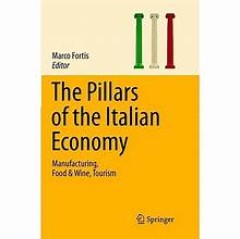
The Pillars of the Italian Economy
This book offers a detailed analysis of the key sectors in the Italian economy, with the focus especially on areas in which the economy excels, such as the automatic packaging machinery sector, pharmaceutical production, the food and wine industry, and tourism. The book explains how, contrary to widespread opinion, Italy is one of the world’s most competitive countries in foreign trade, as co…
- Edition
- 1
- ISBN/ISSN
- 978-3-319-40186-7
- Collation
- Ekonomi
- Series Title
- -
- Call Number
- 330
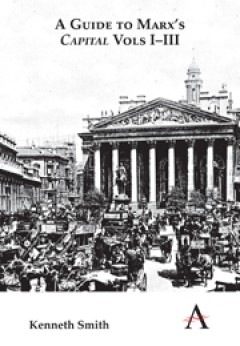
A Guide to Marx's 'Capital' Vols I-III
This book provides a comprehensive guide to all three volumes of Karl Marx's 'Capital', with advice on further reading and points for further discussion. Recognizing the contemporary relevance of 'Capital' in the midst of the current financial crisis, Kenneth Smith has produced an essential guide to Marx's ideas, particularly on the subject of the circulation of money-capital. This guide unique…
- Edition
- -
- ISBN/ISSN
- 9780857285775
- Collation
- -
- Series Title
- Key Issues in Modern Sociology
- Call Number
- -
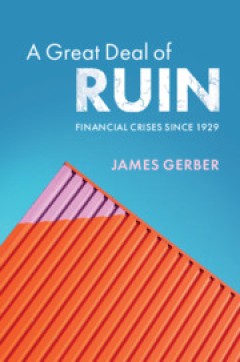
A Great Deal of Ruin Financial Crises since 1929
A Great Deal of Ruin provides an accessible introduction to the enduring problem of financial crises. Illustrated with historical analysis, case studies, and clear economic concepts, this book explains in three parts what financial crises are, how they are caused and what we can learn from them. It begins with a taxonomy of crises and a list of factors that increase the risk for countries exper…
- Edition
- -
- ISBN/ISSN
- 9781108608589
- Collation
- -
- Series Title
- -
- Call Number
- -

Industrial Collaboration in Nazi-Occupied Europe: Norway in Context
This book brings together leading experts to assess how and whether the Nazis were successful in fostering collaboration to secure the resources they required during World War II. These studies of the occupation regimes in Norway and Western Europe reveal that the Nazis developed highly sophisticated instruments of exploitation beyond oppression and looting. The authors highlight that in compar…
- Edition
- 1
- ISBN/ISSN
- 978-1-137-53422-4
- Collation
- XXII, 465
- Series Title
- Palgrave Studies in Economic History
- Call Number
- 330 IND
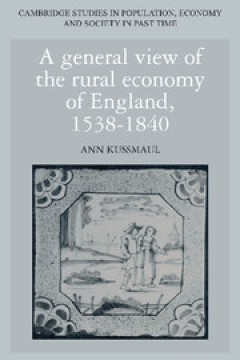
A General View of the Rural Economy of England, 1538–1840
In rural England prior to the Industrial Revolution people generally married when they were not busy with work. Parish registers of marriage therefore form an important and innovative source for the study of economic change in this period. Dr Kussmaul employs marriage dates to identify three main patterns of work and risk (arable, pastoral and rural industrial) and more importantly to show the …
- Edition
- -
- ISBN/ISSN
- 9780511560675
- Collation
- -
- Series Title
- Cambridge Studies in Population, Economy and Society in Past Time
- Call Number
- -
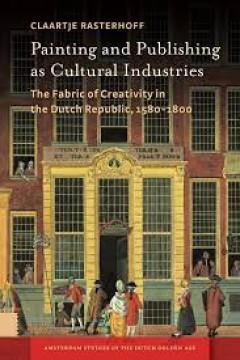
Painting and Publishing as Cultural Industries
The Dutch Republic was a cultural powerhouse in the modern era, producing lasting masterpieces in painting and publishing-and in the process transforming those fields from modest trades to booming industries. This book asks the question of how such a small nation could become such a major player in those fields. Claartje Rasterhoff shows how industrial organisations played a role in shaping pat…
- Edition
- -
- ISBN/ISSN
- 9789089647023
- Collation
- -
- Series Title
- -
- Call Number
- -

Australia's Economy in its International Context: The Joseph Fisher Lectures …
This two-volume collection brings together the first 53 Joseph Fisher Lectures in economics and commerce, presented at the Adelaide University every other year since 1904. Funds for the Lectures, together with a medal for the top accounting student each year, were kindly provided by a £1,000 endowment to the University by the prominent Adelaide businessman Joseph Fisher in 1903. The Lectures a…
- Edition
- -
- ISBN/ISSN
- 9781922064431
- Collation
- -
- Series Title
- -
- Call Number
- -
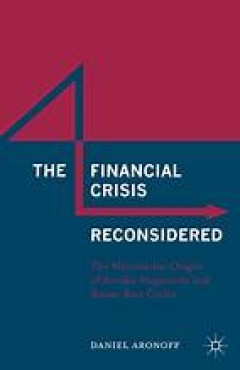
The Financial Crisis Reconsidered
In The Financial Crisis Reconsidered, Aronoff challenges the conventional view that reckless credit produced the US housing boom and the financial crisis, explaining how the large current account deficit, and its mercantilist origin, was a more fundamental cause. He also demonstrates that the decision to provide relief for bank creditors rather than underwater homeowners was responsible for the…
- Edition
- 1
- ISBN/ISSN
- 978-1-137-54789-7
- Collation
- XVII, 291
- Series Title
- -
- Call Number
- -

The Economic System of the Early Islamic Period
This book provides an economic analysis of the earliest Islamic society, focusing on the policies of the Messenger of Islam (Sawa) and his successors during the first four formative decades of Islam. Two institutions of great importance – the market and the public treasury (Baitul Mal) – and their roles in the development of the private and public sectors are particularly emphasized in this…
- Edition
- 1
- ISBN/ISSN
- 978-1-137-50733-4
- Collation
- XXI, 311, 41 illustrations in colour
- Series Title
- Political Economy of Islam
- Call Number
- -
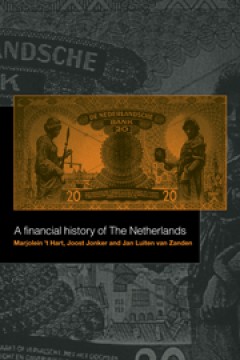
A Financial History of the Netherlands
This book brings together the results of fresh scholarly research to present a unique overview of the financial history of the Netherlands from the sixteenth century onwards. The Netherlands has always occupied a role in international finance way out of proportion with its geographical size. Since the eighteenth century, the country has been one of the largest exporters of capital in the world.…
- Edition
- -
- ISBN/ISSN
- 9780511559754
- Collation
- -
- Series Title
- -
- Call Number
- -
 Computer Science, Information & General Works
Computer Science, Information & General Works  Philosophy & Psychology
Philosophy & Psychology  Religion
Religion  Social Sciences
Social Sciences  Language
Language  Pure Science
Pure Science  Applied Sciences
Applied Sciences  Art & Recreation
Art & Recreation  Literature
Literature  History & Geography
History & Geography